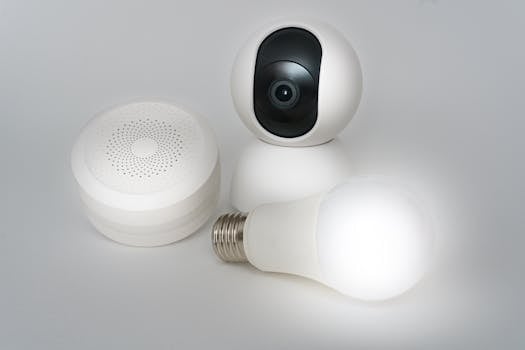
Smart Homes and Smart Living: The Technological Transformation of European Homes by 2025
Smart Homes and Smart Living is revolutionizing the way we live in European homes. The concept of smart homes is not new, but the technological advancements in recent years have made it more accessible and affordable for the average homeowner. By 2025, it is estimated that the majority of European homes will be equipped with smart home technology, transforming the way we live, work, and interact with our living spaces.
What are Smart Homes?
Smart homes are homes that are equipped with advanced technology to make our lives easier, more convenient, and more enjoyable. This technology can include things like home automation systems, voice assistants, and smart appliances. Smart homes can be controlled remotely, using a smartphone or tablet, and can be integrated with other devices and systems to create a seamless and connected living experience.
Benefits of Smart Homes
The benefits of smart homes are numerous. They can help to reduce energy consumption, improve home security, and enhance the overall living experience. Smart homes can also be designed to be more accessible and user-friendly, making them ideal for people with disabilities or mobility issues. Some of the key benefits of smart homes include:
- Energy efficiency: Smart homes can be programmed to optimize energy consumption, reducing waste and saving homeowners money on their utility bills.
- Improved security: Smart homes can be equipped with advanced security systems, including cameras, motion sensors, and door locks, to provide an additional layer of protection for homeowners and their families.
- Convenience: Smart homes can be controlled remotely, allowing homeowners to adjust lighting, temperature, and entertainment systems from anywhere in the world.
- Enhanced living experience: Smart homes can be designed to create a more comfortable and enjoyable living experience, with features like smart thermostats, smart lighting, and smart home entertainment systems.
Technological Advancements in Smart Homes
The technological advancements in smart homes have been rapid in recent years. Some of the key technologies driving the smart home revolution include:
- Internet of Things (IoT): The IoT refers to the network of physical devices, vehicles, home appliances, and other items that are embedded with sensors, software, and connectivity, allowing them to collect and exchange data.
- Artificial Intelligence (AI): AI is being used in smart homes to learn the habits and preferences of homeowners, and to make predictions and recommendations to improve the living experience.
- 5G Networks: The rollout of 5G networks is providing faster and more reliable connectivity for smart home devices, enabling seamless communication and control.
- Voice Assistants: Voice assistants like Amazon Alexa and Google Assistant are being integrated into smart homes, allowing homeowners to control their devices and systems using voice commands.
European Homes in 2025
By 2025, it is estimated that the majority of European homes will be equipped with smart home technology. This will transform the way we live, work, and interact with our living spaces. Some of the key trends and developments that are expected to shape the future of European homes include:
- Increased adoption of smart home technology: As smart home technology becomes more affordable and accessible, we can expect to see more homeowners adopting it.
- Greater emphasis on energy efficiency: European homes will be designed and equipped to be more energy-efficient, with features like smart thermostats, solar panels, and energy-efficient appliances.
- More focus on home security: Home security will become a major priority, with the adoption of advanced security systems and technologies like biometric authentication and AI-powered surveillance.
- Enhanced living experience: European homes will be designed to create a more comfortable and enjoyable living experience, with features like smart lighting, smart home entertainment systems, and voice-controlled devices.
Conclusion
Smart homes and smart living are revolutionizing the way we live in European homes. With technological advancements like IoT, AI, and 5G networks, we can expect to see more homes becoming smarter, more efficient, and more enjoyable to live in. By 2025, the majority of European homes will be equipped with smart home technology, transforming the way we live, work, and interact with our living spaces.






